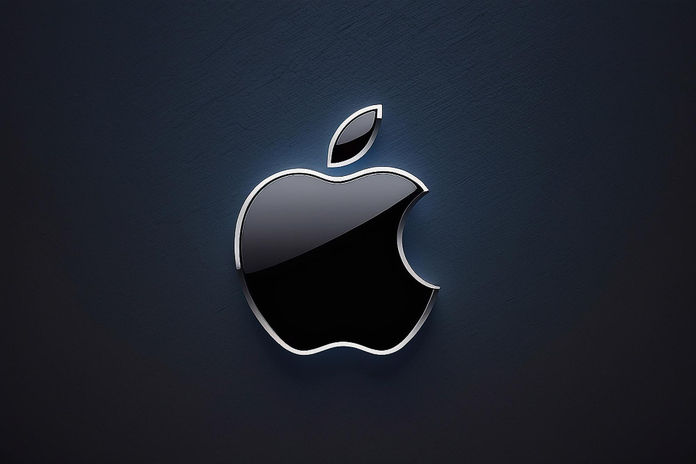Apple Inc. (NASDAQ:AAPL) is once again in the spotlight as it prepares to unveil its latest iPhone model. This time, the anticipation is fueled by the promise of cutting-edge artificial intelligence features, a key element of Apple’s AI strategy. While the company’s stock has soared in recent months, driven by optimism surrounding these AI advancements, history suggests that the upcoming iPhone release could pose significant risks to this rally.
Apple AI Strategy Drives Stock Surge
The focus on Apple’s AI strategy has led to a remarkable 39% rise in the company’s stock since its low in April. This surge has added over $900 billion to Apple’s market capitalization, contributing more to the Nasdaq 100 Index’s gains than any other component during this period. The enthusiasm is largely centered around the potential for AI to revolutionize the user experience on Apple’s devices, positioning the company as a leader in the AI-driven future of technology.
Citi has even named Apple as its top AI pick for 2025, while Daniel Loeb’s Third Point LLC recently took a position in the company, citing AI-related demand as a significant growth driver for Apple’s revenue and earnings in the coming years. However, this optimism comes with a hefty price tag—Apple’s stock is currently valued at 31 times estimated earnings, a 50% premium over its 10-year average multiple.
Historical Trends Cast Doubt on Apple’s Rally
Despite the excitement, there is a historical precedent that suggests caution may be warranted. Apple shares have fallen on 12 of the last 17 iPhone launch days, and September has consistently been the worst month for the stock over the past decade. On average, Apple shares have dropped 3.2% during this month, a trend that mirrors broader market behavior, as both the S&P 500 Index and the Dow Jones Industrial Average typically see their biggest percentage losses in September.
Given the high expectations surrounding the new AI features, any shortfall in the iPhone’s performance—whether in terms of product capabilities or sales—could lead to a significant pullback in Apple’s stock. As Denny Fish, manager of the Janus Henderson Global Technology and Innovation Fund, puts it, “You can easily envision a scenario where the market has built up all this enthusiasm, but then it has to bide time before we get concrete evidence Apple’s AI strategy is working.”
The iPhone’s Role in Apple’s Growth
The iPhone remains central to Apple’s product suite, accounting for nearly half of the company’s revenue last quarter. However, growth in this segment has been lackluster, with customers holding onto their devices longer due to incremental improvements in cameras and batteries, which have made frequent upgrades less compelling.
This stagnation in iPhone upgrades is a significant challenge for Apple’s AI strategy. While the pool of potential upgraders is large—over 40% of Apple’s 800 million-plus smartphone devices are iPhone 12 or older—there is skepticism about whether AI features alone will be enough to spur a significant upgrade cycle. A July survey by Bloomberg Intelligence indicated that AI might not be a strong enough incentive for many consumers to buy a new iPhone, raising concerns about the sustainability of Apple’s current stock rally.
MoffettNathanson recently initiated coverage of Apple with a neutral rating, expressing doubts about the company’s ability to replicate the success of the 5G upgrade cycle from 2021/22. The firm noted that the current valuation implies an upgrade cycle of similar magnitude, which it finds unlikely, especially given the challenging macroeconomic environment.
Long-Term Prospects for Apple’s AI Strategy
Despite the near-term risks, there is still considerable optimism about the long-term impact of Apple’s AI strategy. While the upcoming iPhone launch may trigger a short-term selloff, the integration of AI features is expected to drive revenue and earnings growth over time. This gradual build-up could eventually provide the momentum needed to sustain Apple’s stock price, even in the face of current valuation concerns.
As Eric Johnston, chief equity and macro strategist at Cantor Fitzgerald, points out, “The multiple is clearly lofty right now, but expensive names can stay expensive if the momentum is there.” For Apple, the key question is whether its AI strategy can deliver the sustained growth needed to justify its current valuation.
In conclusion, Apple’s AI strategy is at a critical juncture. While it has driven a significant rally in the company’s stock, the upcoming iPhone launch will test whether these gains are sustainable or if they will give way to a broader market correction. Investors will be closely watching how Apple navigates this crucial period, as the success of its AI strategy could determine the company’s future trajectory.
Featured Image: Freepik



